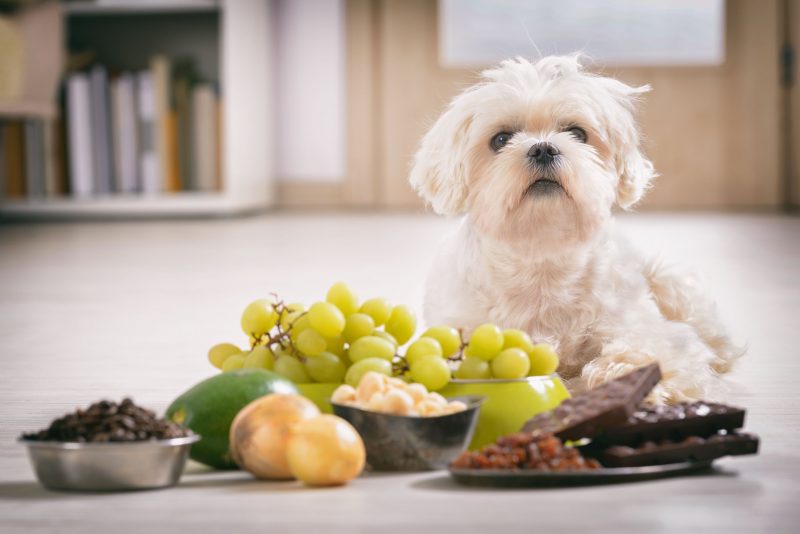
March is National Pet Poison Prevention Month, and to help the families in our community protect their furry friends from common pet toxins, the team at Brownswitch Pet Hospital has put together the following pointers.
Human Medications
Human medications top the list of toxins ingested by pets, according to the ASPCA. Over-the-counter pain medications like acetaminophen and ibuprofen; cold and flu medications; and herbal supplements and vitamins are common culprits. Antidepressants, heart medications, and anticonvulsants are the prescription drugs most commonly ingested by pets.
People Foods
Healthy pet diets do not include people foods, and many foods that people enjoy are extremely toxic—even deadly—for pets. When it comes to toxic foods, the ASPCA’s Animal Poison Control Center receives the most calls about the following:
- Raisins
- Grapes
- Xylitol-containing foods
- Garlic
- Onions
- Protein/nutrition bars
- Chocolate
Plants
Pet hazards could be lurking in your garden, indoor planters, and floral bouquets. According to the ASPCA, most of the severe cases of toxic plant ingestion involve cats and lilies. Click here for the ASPCA’s comprehensive lists of toxic and nontoxic plants. Here are some common household plants that are off limits to pets:
- Aloe
- Easter lily
- Azalea
- Rhododendron
- Cyclamen
- Daffodils
- Dieffenbachia
- Oleander
- Sago palm
- Tulips
Common Household Products
Our furry friends explore the world around them by licking and nibbling, and many common household items come in colorful packaging or have interesting odors that pique the curiosity of our pets. Here are some common household items that pose serious pet hazards:
- Home improvement products like paints, glues, and adhesives
- Skincare products like sunscreen, soap, and muscle creams like Biofreeze
- Cleaning supplies containing ammonia or bleach; disinfectants containing benzalkonium chloride; and air fresheners containing phthalates
- “Garage” items like pesticide, insecticide, fertilizer, and antifreeze
Veterinary Medications and Supplements
Even products designed for pets can turn into pet toxins when large amounts are ingested. Calming chews are meant to taste good, but your pet shouldn’t consume the whole container.
How to Protect Your Pet From Accidental Poisoning
Protect your pet from poisoning by adopting a strict “out of paw’s reach” rule. Simply put, if a product poses a risk to your pet, don’t leave it lying around. Other tips:
- Never administer people pills to a pet, and store all medications out of reach in cabinets.
- Don’t share people food with your pet unless you’re sure it’s safe. And don’t leave a tableful of food unattended.
- Store cleaning products in a secure place.
- Clean up spills right away.
- Decorate with pet-safe plants.
When to Seek Help
Contact us immediately or call the Animal Poison Control Center at (888) 426-4435 if you think your pet has eaten something toxic or displays these symptoms of poisoning:
- Vomiting/diarrhea
- Pale gums
- Tremors/seizures/muscle weakness/collapse
- Shortness of breath
- Rapid heart rate
- Excessive thirst/frequent urination
We’re Here to Help
Please contact us if you have questions about potential pet toxins or to schedule your pet’s next visit.
